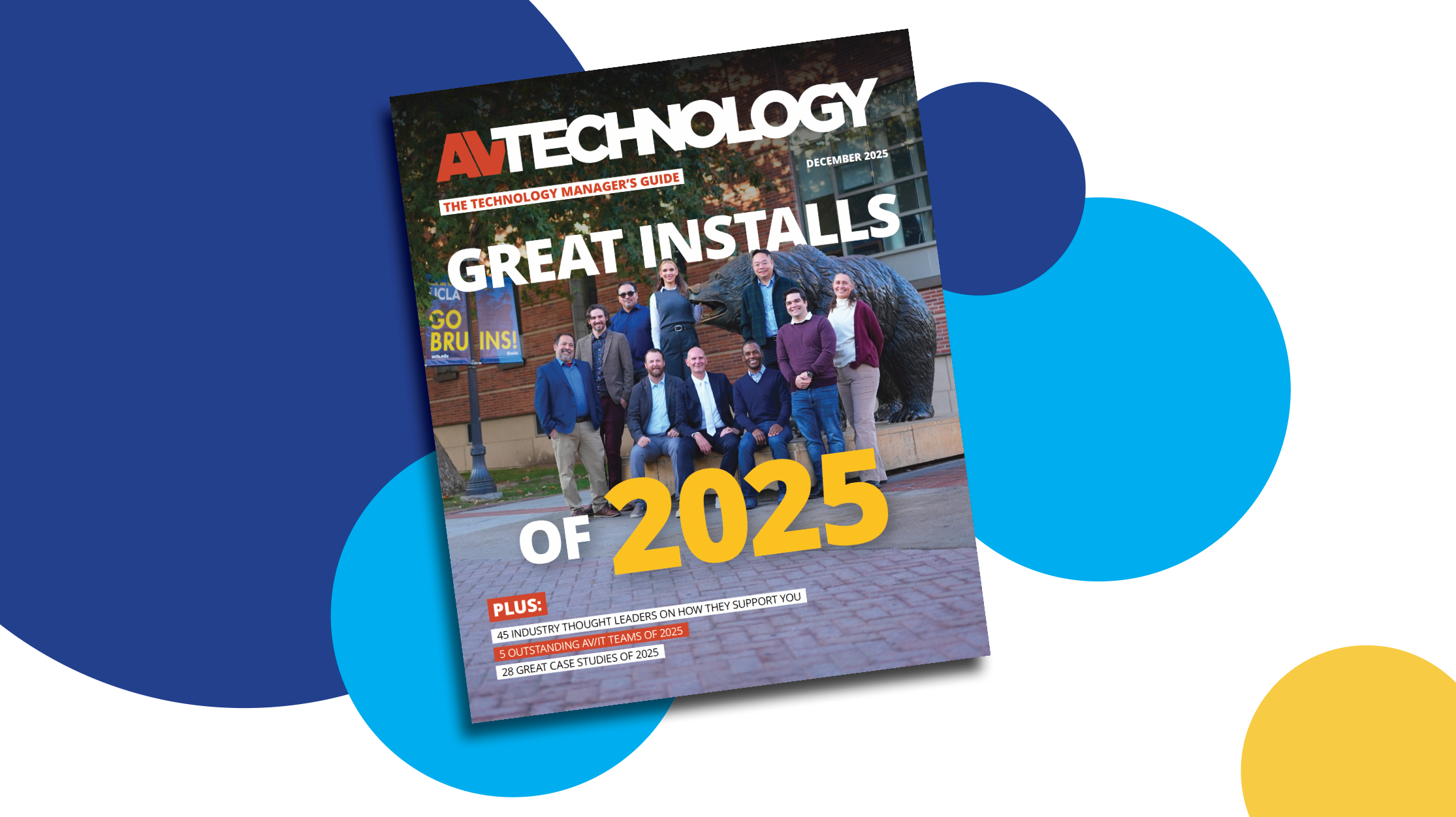On Hybrid Work 2024: SDVoE Alliance
Gareth Heywood, Technology Evangelist at SDVoE Alliance, shares insight into trends that will play a role in hybrid workplace culture, space planning, and technologies in 2024.

AVT Question: Please share your insight into trends that will play a role in hybrid workplace culture, space planning, and technologies in 2024.
Thought Leader: Gareth Heywood, Technology Evangelist at SDVoE Alliance
Agility, flexibility, and sustainability have become essential qualities of hybrid work technology, driving its effectiveness and relevance in modern work environments.
Agility allows technology solutions to adapt to evolving needs swiftly, accommodating changes in work arrangements, team structures, and communication preferences. This adaptability ensures that hybrid work setups remain dynamic and responsive to shifting requirements, fostering productivity and efficiency.
The convergence of agility, flexibility, and sustainability in hybrid work technology enables organizations to navigate the complexities of modern work environments effectively." —Gareth Heywood, Technology Evangelist at SDVoE Alliance
Flexibility in hybrid work technology empowers employees to work from diverse locations and adapt their schedules to suit individual preferences and circumstances. Access to tools and resources from anywhere facilitates seamless collaboration and maintains productivity regardless of physical location, promoting work-life balance and employee satisfaction.
Sustainability is increasingly crucial in the design and implementation of hybrid work technology. Sustainable practices reduce environmental impact and contribute to long-term viability and cost-effectiveness. Companies will continue prioritizing technologies supporting energy efficiency to align with organizational values and contribute to a more resilient and future-proof infrastructure. Incorporating sustainability into hybrid work technology supports corporate social responsibility initiatives.
The convergence of agility, flexibility, and sustainability in hybrid work technology enables organizations to navigate the complexities of modern work environments effectively. By prioritizing these qualities, businesses can adapt to change, foster innovation, and promote a culture of collaboration and sustainability that drives long-term success in the evolving digital landscape.
A daily selection of features, industry news, and analysis for tech managers. Sign up below.

Cindy Davis is the brand and content director of AV Technology (AVT). She was a critical member of the AVT editorial team when the title won the “Best Media Brand” laurel in the 2018 SIIA Jesse H. Neal Awards. Davis moderates several monthly AV/IT roundtables and enjoys facilitating and engaging in deeper conversations about the complex topics shaping the ever-evolving AV/IT industry. She explores the ethos of collaboration, hybrid workplaces, experiential spaces, and artificial intelligence to share with readers. Previously, she developed the TechDecisions brand of content sites for EH Publishing, named one of the “10 Great Business Media Websites” by B2B Media Business magazine. For more than 25 years, Davis has developed and delivered multiplatform content for AV/IT B2B and consumer electronics B2C publications, associations, and companies. A lifelong New Englander, Davis makes time for coastal hikes with her husband, Gary, and their Vizsla rescue, Dixie, sailing on one of Gloucester’s great schooners and sampling local IPAs. Connect with her on LinkedIn.
